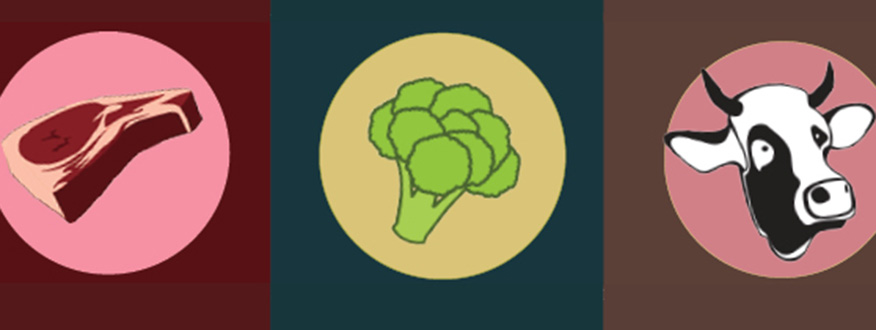Page 37 • (639 results in 0.068 seconds)
-
researched language pedagogy and literature with the department of Languages and Literatures. Xiang Fengjing Shaoxing University, Shaoxing, Zhejiang, China Xiang Fengjing researched language pedagogy and literature with the department of Languages and Literatures. Zhou Jie Fuzhou University, Fuzhou, Fujian Province, China Zhou Jie researched language pedagogy with the department of Languages and Literatures. Hu Zili Chengdu, China Zili served as a Fulbright Foreign Language Teaching Assistant (FLTA) for
-
Course Descriptions RELI 131 : The Religions of South Asia - RL, VW, GE Hinduism, Buddhism, Jainism, and Sikhism - their origins and development, expansion, and contemporary issues. (4) RELI 211 : Religion and Literature of the Hebrew Bible - RL, IT This course introduces students to the critical study of the books in the Hebrew Bible Canon. Students will become familiar with the socio-historical context of these biblical books and their major theological themes; explore in depth a
-
" is a term often used but rarely defined in environmental studies. This project explores critical animal studies literature to construct pedagogical themes in how to raise attentiveness towards multispecies worlds in the context of bird-watching practices. Olivia PetersenGlobal and Cultural Studies and Gender, Sexuality, and Race StudiesA Culture of Peace: Likhet, Genocide, and Affective Economies in Norway Faculty Mentor: Rebecca Wilkin, Global and Cultural Studies This research project pulls
-
History Degree,Study History,American History,European history,Latin American history,East Asian history Hispanic & Latino Studies Hispanic & Latino Studies Program Details major & minor Undergraduate College of Liberal Studies Hispanic Studies,Latino Studies,Latinx studies,Spanish language studies,linguistics,Spanish literature,hispanic,latino,latinx,language,languages,cross-cultural,Spanish,Mexico Global Studies Global Studies Program Details major & minor Undergraduate College of Liberal Studies
-
EUPHONIUM BM Performance of at least two works of contrasting styles (concerto, etude, sonata, through composed original literature). Performance quality must be at or near that of a good conservatory student. All major and minor scales (all three forms) and arpeggios. Scales and arpeggios must be played 2 octaves from (concert pitch) low E to Bb, and one octave from B to Eb. Students with fourth valve will play all scales and arpeggios for any note in two octaves minimum. Two-octave chromatic scales
-
want them to learn to do. Then you assess what they do, with clear criteria and standards. The assessment can be done via such things as: Simulations Demonstrations Team projects Explication activities (for example, in literature) Writing Some Classroom Assessment Techniques (CATs) Foundational KnowledgeHere, you just want to determine if students “understand and remember” important concepts, terminology, principles, etc. Possible Assessment Procedures: Traditional kinds of paper/pencil tests Drill
-

society. “This is an excellent opportunity to have public discussion about human consumption of animal flesh, a critically important ethical question that impacts all of our lives. It is also a wonderful and unique set-up for a debate where I have the chance to both partner with and learn alongside undergraduate students,” Emmerman said. Dr. Michael Schleeter is an Assistant Professor at PLU with a B.A. in Philosophy, Comparative Literature, and Biology from the University of Minnesota and a Ph.D. in
-
of Kansas in 1981, with a major in special education and a minor in language development. He joined the PLU faculty in 1981 and since 1994 has held the rank of professor. Reisberg has contributed to the literature in special education by focusing on topics that can positively impact the lives of students with academic and behavior difficulties, among them classroom management, technology-based instructional methods, and para-educator training. He has held many roles in the School of Education and
-

, Religion and Literature of the Hebrew Bible. In this class, Finitsis asked his students to tell Hebrew Bible stories in whatever way they could. What he saw was “too good for no one else to see.” With that, “Hebrew Idol” was born. As part of the class, the student videos are subject to a vote, with top selections advancing to an awards show. The show includes viewings of the top selections, guest judges portraying Hebrew Bible characters, awards, hall-of-fame inductions and musical performances. It is
-

the study of art history, literature and philosophy from the Ancient Greeks to more contemporary sources. The 12-week course will be offered free of charge to participants, who do not have to be PLU students — the wider Tacoma veteran community is encouraged to take part, regardless of discharge status. Participants will meet for class twice a week, and books, child care and transportation assistance will be provided at no cost. “We are deeply appreciative of the National Endowment for the
Do you have any feedback for us? If so, feel free to use our Feedback Form.


